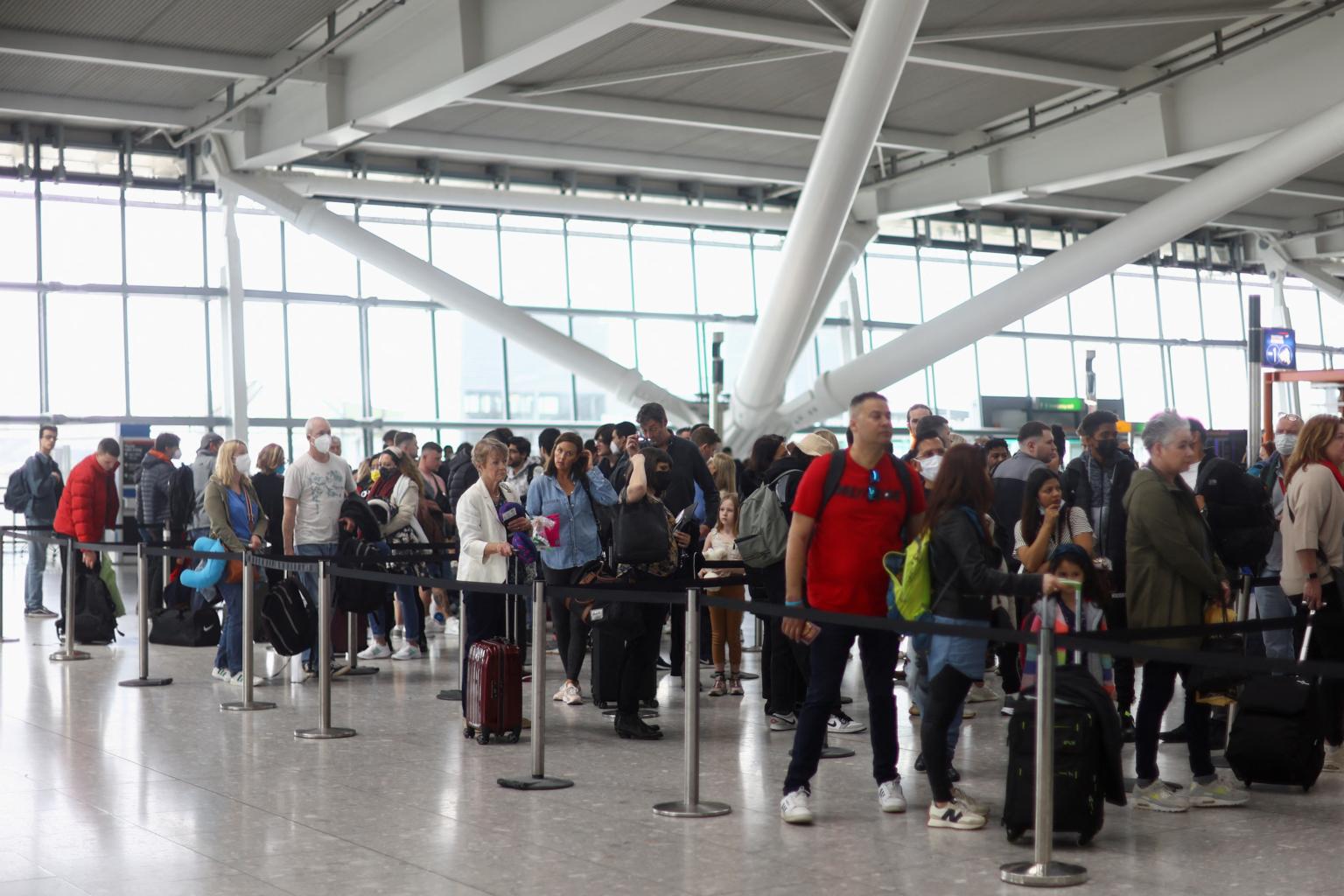Iata says post-pandemic airport chaos will get fixed
Sign up now: Get ST's newsletters delivered to your inbox

Passengers queue to enter airport security at Terminal 5 of Heathrow Airport, in London, on April 14, 2022.
PHOTO: REUTERS
Follow topic:
PARIS (REUTERS) - A top airline industry official called on Tuesday (May 31) for calm surrounding recent travel chaos at some airports as people resume flying after the pandemic, blaming the gridlock on temporary delays in getting clearances for new staff.
A snapback in air travel has triggered long queues at some British airports, as well as Amsterdam, Dublin and Toronto, as airport managers struggle to fill jobs fast enough.
The time needed to get security badges for newly hired staff has risen from three to four weeks in Britain, for example, to as long as three months, said Willie Walsh, director general of the International Air Transport Association (Iata).
"The problem is, you can't start the training until you've got the security clearance," Walsh told a small group of reporters on the sidelines of a conference on ground operations.
"You offer them a job, they accept it, and then you have to go through this period of three months to get security clearance - they're not going to hang around. They'll go and find a job somewhere else."
The former British Airways and IAG boss said he did not expect the trend to spread to other regions, but he sounded the alarm on growing pilot shortages in the United States.
"I think it needs to be put in perspective; there are issues in some airports, it's not across the world," Walsh said.
"I think it reflects the very significant increase in activity we've seen. It also reflects the fact that we're coming off a very low base. So as airlines and airports try to rebuild, it is challenging for some of them ... It will get addressed."
The pandemic led to international travel virtually shutting down as governments around the world curbed entry. However, the easing of curbs and bottled-up travel demand have led to an abrupt upswing in short- and medium-haul trips.
Walsh played down concerns that pent-up demand could prove short-lived as worries about inflation and lower disposable incomes take a toll on future travel spending. Some executives have warned of uncertain demand over the winter.
"Without question, what we're seeing at the moment is very, very strong demand right across the world. It's stronger than we had expected," he said, adding traffic was moving towards reaching 2019 levels in 2023, rather than 2024 as previously forecast.
Oil prices extended a bull run on Tuesday after the EU agreed to a partial and phased ban on Russian oil.
Walsh said airlines had coped in the past with oil prices well above US$100 (S$137) a barrel for benchmark Brent and carriers would eventually pass on these costs to passengers.
The crisis has seen the jet fuel prices to soar even more than crude because of scarce refining capacity, but Walsh said he expected that spread to narrow to more normal levels.
While Europe scrambles to keep up with travel demand, Asian airspace is comparatively still because of factors such as China's tough policies to control Covid-19. Air travel in Asia is still at 13 per cent of 2019 levels, compared to about 50 per cent elsewhere.

